Steve Wheeler is one of the people I’ve met who has been thinking about collapse for the longest and probably the deepest – I highly recommend his blog Steelweaver which contains some real gems of insight for anyone thinking about the kind of changes we’re facing. During last years’ Uncivilisation festival I had the chance to speak to him about his journey through the process of coming to terms with systemic crisis and moving beyond apocalyptic thinking. Steve has kindly agreed to share that conversation here.
JDG: I’ve been looking at Dark Mountain as a conversational space or practice and a key question for me is “what are the boundaries of this space?” One thing I noticed is that the conversational space tends to run up against some kind of limit when the conversation turns to emotionally charged issues like violence.
SW: I’m really interested in the question of violence because… well, growing up I had an older brother who would beat me up a bit, in standard older-brother fashion, so there was a sense that I should be able to fight back – a lot of aggression and suppressed anger and stuff like that. I had an interest in martial arts, but back then I was a very weedy, bookish person, until around thirteen, fourteen I suddenly shot up about two feet and I got quite big. Like everybody, I was made to play rugby and all this sort of thing – so then I was enjoying the roughness and the physicality of things but still being very anxious in any kind of actual confrontational situation until I started training in martial arts.
I was in the Cadet Corps at school as well, you know, the pretending-to-be-the-army thing, and I had this real moment where we went out onto a rifle range; freezing cold weather, really really cold, you have to wait your turn to go and you just shoot ten rounds and then you go back. And if you do anything, if you mess around in the slightest way – because it’s really dangerous – you have these giant, scary paratroopers screaming in your face. So you don’t. You just do it very clinically, clearly, seriously. And, as a result, you realise that shooting a gun isn’t very much fun. They are just a tool for propelling a little bit of metal a very long way away, which isn’t that useful in your everyday life unless you want to kill and hurt people. I realised that my whole life I had had this glamour around guns that… you know, when you are a little kid you want a gun because it is power and you hold it and go “bang, bang”, and all this sort of thing. And that just went away as a result of that experience.
And I was always thinking all male children should be made to get training in firearms in this kind of way, because when you take the glamour away and you understand it, then you also see its limitations and you start looking for more interesting things to do. And I feel kind of the same about violence: I think a dichotomy really exists in people where they have a lot of malice and a lot of repressed aggression because they are scared of embracing violence and understanding it; but in a more archaic society, violence is just part of your life. It’s actually celebrated, in a way, but you end up having a less violent society as a result of that, because people are not denying part of the spectrum of human experience.
JDG: That’s really interesting, and it actually resonates directly with what an experience I’ve had that shying away from such topics and avoiding confronting them head on actually just creates divides between people.
I’m trying to find out what people take from the Dark Mountain narrative but also how they express it. What is it that is “uncivilised” or “wild” or “Dark Mountain” about what people do? How do they bring it into their life and their work and their practice?
SW: Right. I will now tell you the story of how I got involved in Dark Mountain. It feels tailor made for this purpose, actually. So the first thing is, I went to university with Dougald, which is probably the simplest explanation. And we both did English, which I think is quite important because I was always interested in doing things to affect the world, but very much from that perspective that art is closer to the truth that we are missing. People can spin their wheels with intellectualisation forever and just get more and more lost.
I always thought of myself as someone who was going to get around to writing stuff and using fiction and all that sort of thing, and then I carried on in academia as an excuse to not get a job and to write more, and I got very interested in symbolism and myth. I was doing cultural studies and then I started to do a PhD, like a crazy fool. I did my PhD on a book by Oswald Spengler called “The Decline of the West”, which I don’t know if you’ve heard of?
JDG: I know that through reading a bit of Wittgenstein because I think he was also quite fascinated by Spengler?
SW: Yes. Yeah, and Heidegger as well. There was a whole secret history of Spengler influencing people, it’s quite interesting. But yeah, so that was fascinating in all sorts of different ways – I went along with it in large part because the cultural arc he was describing totally matched the thousand years of literary history I’d just been studying. So I felt “I have a knowledge in this area and the pattern that he’s described fits this perfectly”, so there was some kind of basis for corroboration there. And that got me very interested in: what the hell can we do? It’s this cultural nihilism of “all the old stories are dying, all of the motivations, all the narratives have run into the sand, is there anything worth doing anymore? We’re stuck in a dying culture that’s just going to get less and less prepared to think about stuff, and get caught up more and more in debauchery and postmodernism and all these sorts of things. There is no point in trying to say anything to it because it’s just screwed and that’s that.”
In the middle of all this, I googled “Decline of the West” and ended up on peak oil websites in about 2004. And I spent much of the next three years just kind of petrified that society was going to collapse. Everything I’d been thinking and theorising about the structure of society coupled with economics, which I’d been teaching myself, and I had a sudden flash of insight: I looked at the whole thing and I just saw it as this giant house of cards and I thought “well, the slightest loss of faith in this is going to bring everything tumbling down”. I should say, I’d always been very interested in environmentalism as well, because I very much love the natural world, so all of these threads came together. But they came together in a way of “oh, I was going to write a book about this stuff to try to influence people, but now I just think that I should be fleeing to the hills and stocking up on baked beans”!
And I felt very, very isolated for a few years. I mean, if you google peak oil now there’s tens of millions of hits, back then it was like in five figures or something, it was a very niche interest.
The idea of “the Decline of the West” and the idea that we may not be able to continue growing, these have become so much more mainstream over the last eight years in the time that I’ve been looking at this stuff.
So for about three years I was still thinking I might get all my friends together and just say “you’re all going to have to come to my lecture, and I’m going to sit you down and I’m going to lecture you for two hours about the state of the world and why everything is screwed. And then we can all pool our money and move to Wales and somehow be more resilient.” Because I’m stuck in London, which is one of the least… well in one sense it is the least resilient, in another sense it is the capital, and the state will keep flows of food and water and electricity going to the capital when it is long gone from lots of other places.
I had that idea for a while, and I also thought “I’m completely useless”. I have ideas, I can talk, I can think, I can write, but these are only useful in as much as we have this complex civilisation with this upper tier of people who are committed to a shared intellectual culture. If all of that has got an expiry date, then what the hell am I doing?
The thing that got me out of that cycle of doom and isolation was, I went to Thailand for a couple of months and I trained very intensively in an old, traditional style of Thai massage. I’d done a lot of yoga and martial arts and things like this by that point, and I’d always been interested in the body and in health and in these alternative ideas of how things work. And partly I was thinking “if I have these portable skills, then at least I’m useful to other human beings, and if society starts going wrong in various ways, I’m not reliant on the university”.
So I was still in a very sort of selfish place, in a way. I was looking out for myself: “what can I do to make myself safer and useful to other people so that they’ll give me food in a crisis?” But actually going away to Thailand was more transformative for me personally in terms of breaking out of my rot and breaking out of my despair and just having new experiences and reconnecting to myself, doing a lot of psychological work on myself. Getting a lot of treatment just in the course of learning the massage as well, of course, and making deep connections to other people. And that was probably the turning point on my road back to psychological wellbeing and feeling less isolated.
So when Dark Mountain came around a couple of years after that, it almost felt like “well, I’ve been through the five year cycle of all of this, and I totally agree with everything you’re saying, but…” It’s really interesting coming here, you’ll still meet people who have just discovered this stuff six months ago, and they’re in the ‘fleeing to the hills stage’ or they’re in the ‘absolute despair stage’. But the fact is that we’re human beings and we have a certain organic will to live and love and be happy, and, you know, you have to work quite hard to suppress that over the long term. I don’t know if I’m more optimistic about the prospects for society but I’m certainly personally much more blasé about it. There’s no point worrying yourself into having a heart attack in your bunker in the hills – especially if society then doesn’t collapse anyway!
So, Dark Mountain came along and it was absolutely speaking my language, particularly this combination of understanding all the hard stuff about society and economics and the logistics of how things work, and then switching back to the right brain and connecting to stories and myths and narratives; and really doing the deep work that we need to do to get anywhere, really. But at the same time, it’s been quite funny that it is totally speaking my language, but I feel… quite relaxed about it; I’m not the most passionate person that is involved in the conversation. If things had gone differently, I might well have tried to take more of a role in it earlier on, but I don’t quite have that juice to drive it forward and go: “this must happen!” I feel that it’s a necessary thing that people need to go through and I’m really interested in the conversation that happens next, in a way. I think that can still be ‘Dark Mountain’, in a sense, but it’s not necessarily what it means to everyone else quite yet.
JDG: That’s interesting, what comes next? Perhaps this is linked with another question about finding collaborations and expressing the Dark Mountain narrative in our personal lives?
SW: Yeah, actually I don’t express it to everyone in my life. Maybe I should do that more, I don’t know. There was certainly a time when that was the whole of my perspective: “I find it really hard to talk to people because everything just seems completely superfluous”. Like, “well yes, but we hit peak oil in 2005 so everything you’re talking about is irrelevant!” [Laughing] But yeah, you kind of have to live in the world and you have to interact with all sorts of people.
I think one of the answers to that question, “where next?”, is that it isn’t just conversation. I mean, so many of these things that we are talking about are ways of reversing alienation. So yes, it’s a shift from Logos to Mythos, but it is also a shift away from intellectualisation, verbalisation in general, to feeling and to the physical. So, you see people doing… there’s people doing crafts just over there, they are weaving things out of New Zealand flax. It’s really valuable to experience something like this and actually come out and connect with nature and connect with crafts and working with your hands. I think it is all part of the same thing. When you start making those connections, it starts awakening something in you.
It’s such a big ship to try and turn around. One aspect of Dark Mountain is that it is just psychologically really good for people. You know, whatever happens next people are stronger and more resilient for having come here and dealt with this stuff. But I think it would be a bit solipsistic if it was just a kind of therapy for people worried about the future of the world. It’s really good that we’ve got this activist theme this year talking about the road protests, which were really the last time in the UK where streams of quite modern, alternative fashion coincided with this connection to the land and to nature and to roots. We probably haven’t seen anything like that happen again. There’s something of the flavour of it in Occupy – it’s quite a DIY kind of thing, it has an aspect of that craft.
And it’s a big thing to start deconstructing that feeling of progress and that assumption of progress. Once you get alienated from it even slightly then you see it everywhere. Any TV programme, they just casually talk about growth and progress as if it is the most obvious thing in the world.
JDG: And it runs so deep, we seem so predisposed in this way by our mental concepts and language. You know, it is easy to think we have to ‘make’ a living. Making a living? We are living, you know! For me this relates to the undoing and unlearning and uncivilising. In the beginning I found it really hard because its relatively easy to observe “ok, I think this or I say this”, you know, “I should be be unravelling my thought a little bit more”. But then you do that to some point and then you realise that actually the unlearning is not just about avoiding thinking in a certain way. It is almost like there are two sides to ‘unlearning’ something because the best way to unlearn is also by doing differently and step into something. And just being there, you know?
SW: Yeah, and not trying to think your way out of the problem which was partly just over-thinking in general. You know, if we are stuck in the intellectual realm being even more intellectual about this stuff isn’t necessarily going to get us out of that.
My workshop tomorrow has something in it about narratives, actually. I’m going to be talking about the sense of an ending, this idea of the apocalypse as the flip side of the progress narrative. And it is all based on this idea of repressing something in our experience now in order to wait for something in the future. There’s that tension: part of us is tense for the great future we are going to have and part of us is actually praying for that tension to end in the way that we can actually cheer for the apocalypse when it happens in movies. Like when you go and watch post-apocalypse movies: “oh, it’s so exciting because everything has come down!” I’ll be talking about ‘Independence Day’, when they blow up the White House and people were cheering: Americans in movie theatres were cheering! Because the symbols of the structures that contain us are exploding, and it’s that sense of release that people are secretly craving: an apocalypse. And if they are really far gone, they are craving it in a really dark way such that they might actually bring one about if they are in a position of power. And it’s better to deal with that before they actually do anything unwise.
The opposite of that isn’t a different kind of anticipation of something different in the future. It’s not living in an abstract future so much, it’s living in the now. And that’s when we realise improvisation is such a strong part of it, because improvisation is about not anticipating, it’s about paying attention to what is now. You think things are going to go one way and – oh no, they are going in a different direction. You just go with that and suddenly the entire future is different, all the possibilities are different. And you’re going from there and then it bifurcates again. That’s definitely a different way of living that means when you go “oh god, what’s going to happen, where do we go next, what’s the next thing for Dark Mountain, how can we change things?”… actually I think the point a lot of people get to is to say “oh right, I don’t need to have those answers”. It doesn’t mean I’m giving up or backing away, it means that you are just more responsive to what is possible.
So, you know, you can have all of these plans and then you can give them all up and see what happens. Then Occupy happens the next day and you go down and join in. And everyone there, some of those people might have a fixed idea “it has to go down this way”. As soon as it got a fixed idea Occupy started falling apart – if they had been more open to possibility and just responded and said “oh, it’s not going to work like that but we could change it into this and that would still have a positive effect”; this is the only way to proceed. This is uncivilised thinking to me. We don’t need to have a neat, abstract map of everything we are doing and why we are doing it and where it’s going to get us. ‘Bleak’ were playing last night, the chorus for one of their songs is “you don’t know right from good”. It’s that thing where “oh, I’ve got this moral framework that I can check, cross-index things and work out whether it’s right or not”. No. Do you know whether it is good in your bones? If it is, you can just do it and you can be sure that’s going to have a positive effect and you don’t need to plan everything out to the nth degree.
JDG: That’s where the progressive metanarrative is so effectively destructive, because if we’re stuck on the motorway of linear time then the change is always going to be in the future. But if you’re open to the possibilities existing right now then, all of a sudden, time is a whole different thing. We can think about the future, we can project the future, but the change will have to start from here. It’s a kind of double-bind that we are stuck in on a societal level.
SW: And it’s a letting go. It’s a letting go of certainty and being open to risk and the fact that you may have to adapt and be more flexible. And, you know, your idea of how things are going to turn out may not be true, and the more flexible you become, the less change is going to hurt you. And obviously, we are moving now into a period where things are not going to be as linear, and as clear and as predictable. There’s going to be a lot of black swans coming over the hill, we have no idea how all of these different crises are going to interact and what emergent crises are going to come out of that. And this is why, you know, resilience is perhaps not quite the right word because it suggest people building up a fortress with big walls. It’s much more about agility and… I like the word ‘ductile’. You know like metal, it’s not ‘malleable’, rather it’ll bend and then spring back. And so yeah, these are the kind of characteristics we need to be cultivating. And I like to think Dark Mountain is rooted in that sort of thing.
JDG: I feel it’s also about reclaiming our attention, because modern society fragments our attention to a level where we are not able to really hold the focus and pursue what is good, even if we really do know what that is. It’s like we’re living in a time when attention spans are getting so short it’s actually preventing us from doing stuff. Sometimes I get that when I have twenty different pages open in a browser and it’s like “Argh!” and I’m paralysed.
SW: Yeah, I have that sometimes, I get to the end of being on the internet for four hours and I have no idea what I just looked at. Nothing has stuck in my mind! I wrote a thing called Reality Is a Failed State and that’s exactly the theme of that piece. I was talking about reality fragmenting in two different ways, of different people inhabiting different realities but also of fragmentation inside ourselves. We are so fragmented now that we think one thing at one time and then you switch to a different context and you’re thinking something completely contradictory and you don’t notice the contradiction. And it’s just that hard work of bringing yourself back into being a single person with a single view on life. For a lot of people it actually takes some kind of transformative practice like a philosophy or a meditation practice, or something like that, where they can take a very simple, universal protocol and apply it to everything. And that actually gives them the beginnings of a structure that they can have all of their experiences connected back to the same root.
I supposed this is what mythological structures used to do for us. You know, in the beginning there was one. And then there was two, like the primordial egg cracked. And then there was lots of activity and life. And the monkey god comes out and he creates lots of diversity. And then, I don’t know, the sense of Logos separating out into the intellectual and into the creation of art. And all of the things in the world, you can nest back into a smaller and smaller number of things and they all come back to the One. So you always have this structure to understand everything in your life in a way that makes sense. And we just lost that at some point. You can see it with fairytales, when you tell kids fairytales and they actually give them structures to connect together disparate parts of their consciousness and that’s what’s satisfying about it.
I was talking to a storyteller called Shivam O’Brien back in March. He told me a story called ‘The Frog Bride’, which I’ve just found in my Russian fairytales book. I mentioned how I know so many people who are writing children’s books, as if the only people who can really enjoy stories are children now. And he said “yeah, well, I would never do that, I would never have the arrogance to think I could make up a story. The stories come from somewhere else, they are not human-made” – you know, they are something bigger than us. It’s a really interesting perspective.
I still think I could make up some stories, though! [laughing] I think there’s different levels of stories, you know, fairytales are great but they don’t have that many hooks that connect into our everyday lives. And you could have fairytales and then you could have a level up of slightly more disparate stories that still have a lot of archetypal material in them, and then working your way up to science fiction that helps us deal with the latest technology and think about how it relates to our humanity. I think all of those levels are useful.
JDG: Yes! Stories really play an important role in our psychology somehow. My grandmother died last week and in the days afterwards all of these memories and stories that are not the usual ones I tell about my grandmother came up. In my family we went through this process where over the next week we told each other all these different stories. We collectively were taking these different memories and putting them into this shared framework that we could all relate to so that there was both a space for grieving but we could also cherish and make sense, and preserve part of her in each our lives. It was a really beautiful process.
SW: Do you know the book ‘Ender’s Game’? The sequel to that is called ‘Speaker for the Dead’… Ender, feeling quite guilty about what he did at the end of ‘Enders Game’, goes off and becomes a ‘speaker for the dead’ which is this established role where he’ll turn up on a planet where someone has died and he goes and interviews all of the surviving relatives and tries to find out the truth about that person’s life. And then at the funeral ceremony at the end of the week, he stands up and he tells all these things about their life. And sometimes they are really uncomfortable truths and secrets that have been concealed. There’s this idea that all of the people closest to the person will have had their own partial view, someone needs to take responsibility for the whole. And I just thought that would be an amazing thing to actually have in our society; to have someone to collect together those stories and then tell them in public.
I mean, what you’re describing actually sounds like a really great, private version of that. Just kind of collaborative… that is what families should do. They should share those stories – and actually I think that is what people naturally do do in that situation. Maybe that is what Dark Mountain is for Western industrial civilisation! We’re just the speakers for the dead. We are coming together to tell the stories, and I think that should acknowledge the good as well as the bad. If you just focus on the kind of Derrick Jensen angle and say “the history of civilisation is just the history of oppression and violence and hierarchy…” – well, yes, but it is also this phenomenon that just seems to keep happening. It’s seems to be bigger than the decision of any individual human being, and there is also a kind of grandeur and beauty and glory in it. In the same way as in tribes, you celebrate going into battle – that’s violent and it is bloody but it is an aspect of human experience and they view everything as worthy of celebration and commemoration.
So, I would like to be in some kind of utopian future tribe looking back and celebrating: “Oh, they had some good things and we’ve left some of the cathedrals standing” [laughing]. But, unfortunately, we are still here!
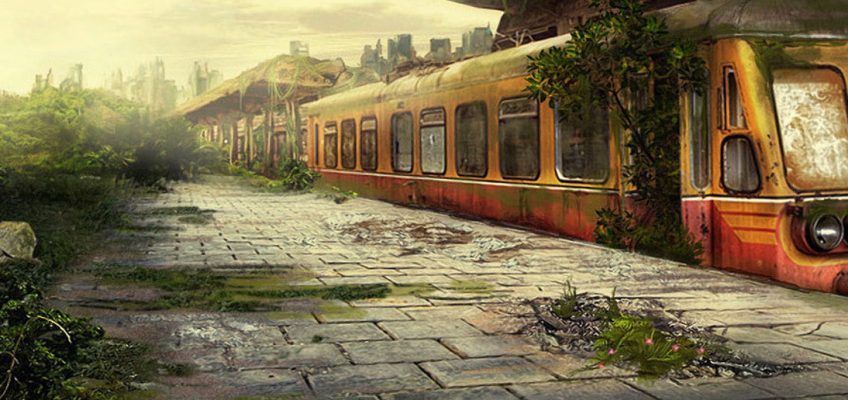
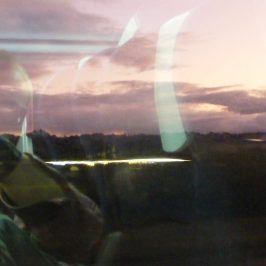
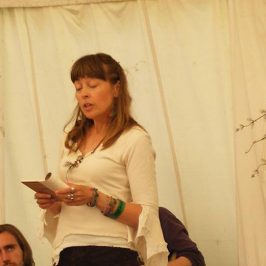

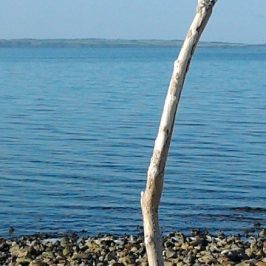
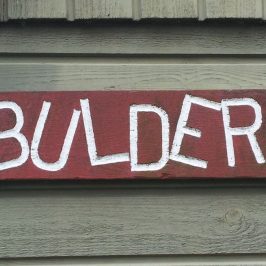
When the game is rigged and the ref is corrupt
Perhaps what we should fear most in this age of Collapse is the strain on...